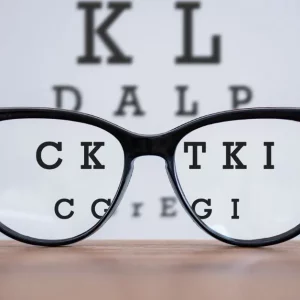A traumatic brain injury can severely affect a person’s social skills and their ability to connect with others. Poor social skills after brain injury can impact a person’s self-esteem. They might struggle to maintain friendships or be challenged to make new ones.
This can lead to isolation and a sense of failure, which can lead to depression. That’s why re-learning social skills after brain injury is so crucial during recovery. Not only does it ward off potential isolation, it also helps improve one’s overall quality of life.
Today you will learn about social skills and how brain injury can affect them; finally you will learn what steps you can take to recover them.
What are Social Communication Skills?
Communicating with others involves more than just speaking. It includes body language, facial expressions, tone of voice, and other actions that promote connection with another individual. To truly communicate, you must be able to share information with people in a way they can understand.
Effective communication skills require the use of several cognitive abilities, including:
- The ability to listen to and recall what the other person said
- Starting and ending conversations
- Taking turns speaking
- Managing your emotions
- Understanding non-literal language, such as humor
- Understanding social boundaries and expectations
- Awareness of the situation and the other person’s feelings
- Organizing your thoughts and sharing them in a way that makes sense
All of these skills comprise what psychologists call social pragmatics. After a brain injury, many of these abilities are lost or impaired, which makes socializing more difficult.
How Brain Injury Affects Social Skills
Damage to the frontal lobe can cause a lack of insight and awareness. This makes it more difficult for a person to monitor their behavior and understand how it comes across to others. This kind of impaired social skill after brain injury may manifest in a variety of ways.
One example is when the brain injured individual does not allow the other person much time to speak. This does not happen because they are selfish, but because they do not even realize how long they have been talking.
In addition, the orbitofrontal cortex helps regulate our impulses and prevents unwanted emotional outbursts. Therefore, if it becomes damaged, a person might say or do inappropriate things while speaking.
Other effects of brain injury that can impair social skills include:
- Hearing loss, which can make it difficult to listen to others and pick up verbal cues.
- Attention problems, which impede a person’s ability to follow a conversation.
- Memory issues, which can make it hard to remember what the other person said.
- Lack of motivation, which can prevent a person from initiating activities, including conversations.
Mood swings and depression can also contribute to poor communication skills.
Signs of Poor Social Skills After TBI
Because brain injury often affects a person’s self-awareness, they may not realize how their social skills are impaired.
The following are some signs that a person struggles with social communication:
- They fixate on one topic and try to bring every conversation back to it.
- They give too little or too much information.
- Their responses might not make sense.
- They ramble or repeat themselves.
- They talk too fast or too slow.
- The other person has to ask a lot of questions to keep a conversation going.
- They struggle to read emotions.
Fortunately, it is possible to regain social skills after brain injury with the help of a therapist.
How to Improve Social Skills After Brain Injury
Social communication skills can be improved in most people, even after brain injury. As with all learning, improving your social competence will require consistent practice.
Speech therapists, occupational therapists, and neuropsychologists are the types of medical professionals who can help you relearn social skills. Group therapy for social communication skills provides opportunities to practice role-playing conversations in a safe environment.
If you don’t have access to any of these resources nearby, you can still improve your skills with a trusted friend or family member.
The following are a few helpful ways to boost your social confidence after brain injury.
1. Evaluate
The best way to improve social skills is to determine what you struggle with most.. Some questions to ask yourself include:
- Do I listen and let the other person talk?
- Do I show interest in the other person by asking them questions and staying focused?
- Do I get to the point? Or do I ramble on?
- Do I initiate conversations?
- Do I get too emotional or not show enough emotions?
Ask a person close to you how you do with these skills because they may notice things you are unaware of. If they observe problems, try not to get defensive. Remember that problems with social skills after brain injury are not uncommon. You can improve, but you need to know where your weak spots are.
2. Set a goal
Pick one skill that you most want to improve and work on that one first. By focusing on one skill, you do not overwhelm yourself in the process as these changes take some effort to implement.
For example, you could set a goal to ask more questions during conversations. Have your family members teach you how to ask questions and practice with you.
Just remember to start small and slowly work your way up. The more manageable you make your goals, the more likely you are to achieve them. With success you are more likely to continue to improve.
3. Practice
Practice your skills in places where you have a chance to interact with people, such as at your doctor’s office or during recreational therapy. You can even try some volunteer work, which often provides good opportunities for conversations.
To start a conversation, especially with someone new, here are a few tips:
- Talk about things around you, such as the weather or the person’s dog/pets.
- Ask open-ended questions, such as “what did you do over the weekend?”
- Take turns talking and listening.
- Pay attention to your body language. Make sure to smile and nod.
If your friend or family member is there to observe you making conversation with a stranger, ask them for honest feedback on how you did and where they think you still need to improve.
Social Communication and Brain Injury
Social communication skills are critical for improving your quality of life after brain injury. Not only can they help you form and maintain relationships, but they can also help you succeed at work, school, and every other area of your life.
While brain injury can make connecting with others more difficult, with enough practice and persistence, it is still possible to improve your social skills after brain injury.
Just remember to be patient with yourself, and to take things one step at a time.










